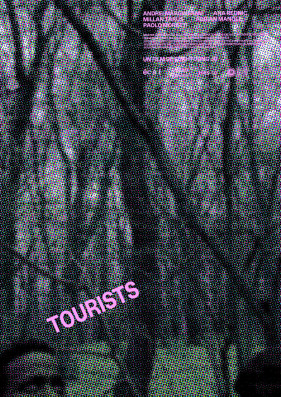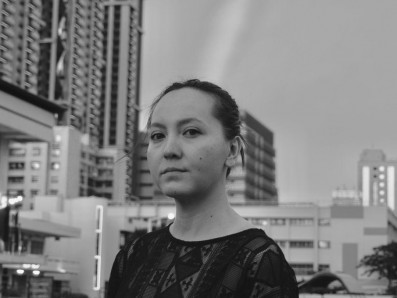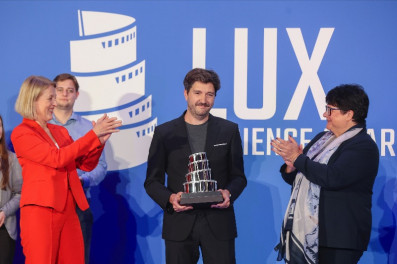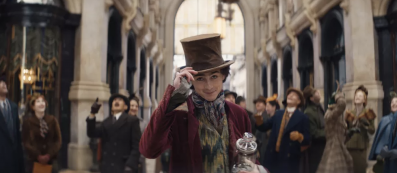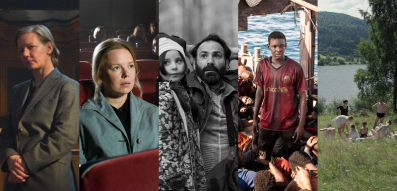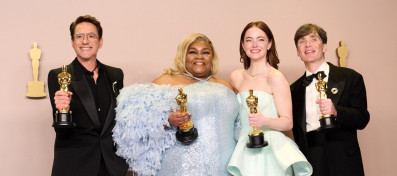A Hidden Life - WW2 letters of an Austrian man against Nazi regime
In his latest work, Terrence Malick goes back to his roots!
As the bells toll in the hollow of the St. Radegund greenery, a woman looks up at the darkening sky. Listening to the metal bangs, she stands on a freshly dug field, brazen and ready to swallow up the seeds. Nearby, a young couple is married in the unfriendly hours of 1943. Though we see only her firm, skinny backs, soon we shall recognize Franziska Jägerstätter, played by Valerie Pachner, whose husband Franz - played by August Diehl - has been taken to Berlin´s central military prison upon repeated refusal to swear an oath to Hitler. Soon, the bells will quiet and all that remains will be the bitter sorrow and a nearing sense of death swallowing the space created. As Terrence Malick revisits the full splendor of pensive genius at work, there are no otherworldly heroes here, just men consistently holding to their defeat to the ultimate sanctification. In A Hidden Life, the taciturn grief of bravery is met with repetition to the human dignity of saying no, face to face with mutilating pages of history.
It will be another twenty years since Jägerstatter´s execution before one Hannah Arendt publishes observations on Eichmann´s trial in Jerusalem, reminding not only our western civilization but rather the entire human species on actual derision in man´s identity, the acuity of evil at the action. It is not senseless in the means of irrationality, the tempered logic behind now historic destruction machinery is more than orderly. Its totality and mass acceptance fuelled mostly either by inseminated hate or pure fear rested on the promise of the most elusive future, a better future for which the price was the point-to-point termination deemed necessary. Under the political consummation at times, such categories of good, evil, right choice or necessity become unevenly disfigured in defense of the higher cause or the good of the nation, both equally distorted terms. Quoting David Rousset in her work explaining the identity under the Third Reich it says:
“The triumph of the SS demands that the tortured victim allows himself to be led to the noose without protesting, that he renounce and abandon himself to the point of ceasing to affirm his identity. They know that the system which succeeds in destroying its victim before they go on scaffold I s the best to keep people in slavery.” (David Rousset, Les Jours de Notre Mort)
Jägerstätter´s decision rests with a path less traveled by, to cite the poet. The war reaches even the outskirts of Tirolean heights with the idyllic farming life disheveled quickly. In a tightly-knit community rests more than one scythe to bury a man´s good intentions to its fellows, his love, his God. The criminalization of Jägerstätter´s action is due partially to abiding laws of the time, giving sprout to some bad blood amongst the nation´s populous. In the totalitarian regime, the question of guilt or ethics rests not with individualization of the case, rather with a purified ideal that is mystifying the possibility of one´s own choice. Justification on both sides is guided by different duties. Ostracized by the community as a whole, Jägerstätter´s family suffers not only the loss of a father, son or husband; it takes a share of this lonesome choice of soul´s certainty in what should not be done and therefore cannot be suffered by doing. The duty of the man is, therefore, growing above and beyond any state-acknowledged justification, even the reasoning offered as a necessity from Michael Nyqvist´s welcoming performance as Bishop Fliessen.
Similarly textured is Camus´ L'Hôte ( meaning both The Host and The Guest), with its screen version of David Oelhoffen´s Loin des Hommes (Far From Men). Reda Ketab and Viggo Mortensen played respectively the two protagonists, Mohamed and Daru. Stemming amidst breathtaking Atlas mountains, the desert ground caught amidst the fires of Algerian revolution and unresolved colonialization conflicts, the story follows Daru, a village professor, to whom a murderer Muhammed is handed with the accusation he had slain his cousin and therefore must be sentenced to death. Resting on two faces almost the entire time, the guilt and moral of the narrative feels rather close to A Hidden Life, even if it poses at first the stark difference of murder at hands; still, the necessity of survival is withheld from us in an ambiguous ways as the benign nature of Ketab´s performance grounds the final decision. The survival is paid by a high cost that might be presented as “the necessary evil” or transmutation of humanity, as in both cases we might recognize a Macbeth-alike trait of blood will have blood. In Far From Men, with its bereft aesthetics, Mohamed´s cousin might trigger a neverending circle of retribution between families.
For Jägerstätter it is the village, every family and almost the entire country that demands his end on account of everyone else´s acceptance of Hitler. In the end, almost mockingly, Jägerstätter is being told that the oath is merely words, nothing more; the abeyance he may carry in his heart Interestingly enough, A Hidden Life sees Bruno Ganz´s last appearance, as Judge Lueben who invites Jägerstätter to a private audience and interrogation, intimately reducing the effect of the last judgment in their one-on-one masterclass. Ganz´s questions feel intermittently close to war´s ending, precipitating the change of current that was on the horizon, with Diehl delivering Franz´s simple honesty after months of captivity. The equity of opponents forms a closure in itself that will resonate until the movie´s final credits.
A HIDDEN LIFE-THE VISUAL PHILOSOPHY
With the mirage of evanescent images of life past or present, Malick possesses a rare gift of creating an atmosphere of both grace and damnation. Resorting to cut dialogue/monologue sequences that bind the movie´s interpolations with wandering images of nature undisturbed by blood, this mind-mapping whispered epic created Malick´s real pinnacle, far from any of his previous work. This time the language is transcendental in its own right as it bonds palpable differences of both time and spousal ties. In order to inhabit the time fully, one inhabits not the seemingly only set of rules, but the inner awareness of what is immediately an affirmation of his religious beliefs and his upbringing, which is translated as stubbornness by his fellow men. Here, Malick propels the questions of being and its transformation we come by often when following his exploit of pensiveness -in order to be aware of the moment, one had to relive the circumstances of the decision, to obey a law set by oneself. Malick again demands nothing, controls only by allowing the actors to open up in free space; his narrative now more linear still advancing through inner guidance of the character´s mental and emotional state.
However, his elusive quality is effectively contrasting intones, bringing us closer to the Jägerstatter´s imminent destruction, precisely through a calm manner of laying the sequences melting into one eloquent sensory whole. Shot in desaturated, earthy tones, using natural light ( with Jörg Widmer, a long-term camera operator first time shining as Director of Photography) A Hidden Life is a sort of reverence in its own right. Here, the birth of long-shots conjures almost religiously with the creation of the space; each action is both an inner finish for us as much as for characters accepting fate as an inevitable yet expected event. Hope is hinted through love and trust with Franziska bearing with the utmost strength of Pachner`s piercing look. Diehl can here be animated as an early echo of some of the Tarkovsky´s meditations of a soul intact, what with suffering the loneliness acutely amongst the stones of solitary or the fact his spoken lines are scarcely present. Both actors have said that, in a way, “the experience of the movie never left them”. As the shooting took them amongst the home of Jägerstätter´s village or Berlin´s prison, so the recording of the Malick´s signature mind-mapping monologues took place separately over the entire year. Resulting in an illuminating interrogation, A Hidden Life´s hushing beauty fully restored Malick as one of America´s visual poets of our century, this time with ethereal sorrow of James Newton Howard´s Soundtrack. Supplying the closure from Ethan Hawke´s First Reformed character ”Belief, Forgiveness, and Grace cover us all” it is with a deep gratitude we resort to A Hidden Life´s legacy of silent unvarying example of Jägerstätter, in hope, our choices are more our own and not expectedly uniform with acceptance of the world in bloodbaths.


